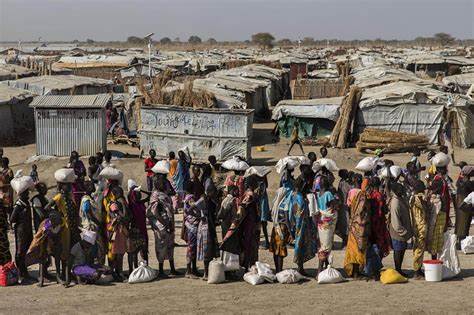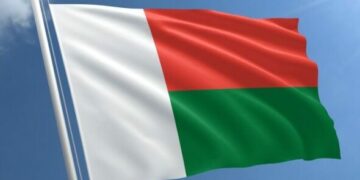A disturbing humanitarian crisis is unfolding in West Kordofan, Sudan, marked by arbitrary arrests and torture of the elderly, with harrowing images circulating on social media depicting victims with blood-soaked faces and blindfolds.
West Kordofan, comprising 15 localities, is home to various tribes and clans, most notably the Misseriya. Key localities include Al Salam, Al Nuhud, Ghubaish, Abu Zabad, Al Mujlad, and Abyei.
The state boasts vital supply routes for military forces via the neighbouring Darfur region, and it also contains pipelines transporting oil from South Sudan for export through Port Bashaer on the Red Sea.
ISIS-like Tactics
In a worrying escalation of violence in Sudan, local sources and credible reports reveal that extremist groups and radical Islamist brigades allying with the army are committing horrific crimes in Al-Khuwai and other areas, employing methods reminiscent of ISIS in killing and terrorizing civilians.
According to Sudanese journalist and human rights activist Sara Malik Al Saeed, these groups have carried out public beheadings and decapitations of unarmed civilians, sparking widespread panic among residents. These practices are seen as a dangerous escalation that threatens the social fabric and unity of the country.
Al Saeed reports that these brigades receive support from factions linked to the Muslim Brotherhood and the Port Sudan authorities, operating with an agenda to destabilize and sow chaos in areas under their control.
Calls for Intervention and Mass Displacement
Civil society organizations and human rights institutions have urgently called on the international community and UN bodies to intervene immediately to halt these violations. They have also appealed to national forces and all parties to unite and renounce violence to preserve Sudan’s unity and the safety of its citizens.
Estimates suggest that the continuation of these atrocities could trigger a new wave of displacement and exacerbate the country’s humanitarian crisis, which has been in one of its most complex political and security phases since the outbreak of war in April 2023.
Since the Sudanese Armed Forces (SAF) and Islamist brigades began targeting West Kordofan, the International Organization for Migration (IOM) reports the displacement of over 7,000 families from the cities of Al-Khuwai and Al Nuhud in the state. IOM’s field teams estimate that 7,204 families fled Al-Khuwai and Al Nuhud due to escalating insecurity on May 1 and 2, with most seeking refuge within West Kordofan and in North Kordofan state.
Atrocities and Accusations
Reports indicate that a joint force of armed movements allied with Al Burhan committed brutal crimes and grave human rights violations in the Al-Khuwai area recently, according to Al Taghyeer newspaper.
The Rapid Support Forces (RSF), in a statement, accused elements of the “Joint Force” of carrying out a barbaric criminal campaign characterized by horrific violence and sadism. They alleged the deliberate killing of dozens of civilians by beheading them after brutal torture and mutilating their bodies in what they described as a systematic ethnic cleansing crime targeting innocent citizens.
The RSF held Al Burhan and his allied brigades are wholly responsible for these massacres, demanding that the international community and international human rights organizations document and condemn these actions. They also urged free media outlets to expose these crimes to public opinion.
Shifting Control and RSF Pledges
Sudanese journalist Al Basha Tobaq reported on X that the strategic locality of Al Nuhud, the largest city in West Kordofan, was “liberated.” Al Nuhud had been designated as the state capital by “Islamist Movement gangs and the army” after the city of Al Fula was “liberated” from their grip earlier this month. The “valiant forces” are now advancing towards Al Obeid, the capital of North Kordofan.
Concurrently with these developments, the RSF swiftly opened safe corridors to evacuate civilians from combat zones in West Kordofan. Days prior, the head of the civilian administration in West Kordofan, Yousef Awad Allah Alian, urged all residents of Al Nuhud to avoid joining “terrorist brigades and militias” and to remain in their homes, staying away from conflict areas to ensure their safety.
Alian emphasized that the battle for West Kordofan “is not against a tribe or against citizens, but against those who exploited the tribe to advance their dirty agenda and the agenda of the devilish Kizan movement. He stated that the RSF is capable of protecting Al Nuhud after its “liberation from the remnants” and can provide all services to citizens.
The RSF has pledged not to allow any citizen residing in areas “liberated” by them to be humiliated. Alian indicated that as the civilian administration for West Kordofan, they are immediately prepared, once Al Nuhud is fully “liberated,” to provide all services and coordinate with the civilian protection force to ensure security throughout the city.
A Pattern of Extremism
The extremist approach demonstrated by Islamist brigades in West Kordofan mirrors previous atrocities committed in South Kordofan, known as the Hamadi and Hawazma massacres. Al Basha Tobaq stated that “the massacres committed by Al Burhan’s forces, the Islamist Movement’s militias, mercenary movements, and the terrorist Al Baraa ibn Malik Corps affiliated with the Iranian Revolutionary Guard, shake the human conscience… revenge campaigns and the slaughter of women, children, and the elderly, all constitute a full-fledged crime of genocide and ethnic cleansing.”
These massacres prompted the RSF in mid-May to strongly condemn the horrific massacre committed by what they termed the “Joint Force, the terrorist Al Baraa ibn Malik brigades, and the ISIS elements of the Islamist Movement’s army” against the Hawazma tribe in Al Hamadi city, South Kordofan state.





